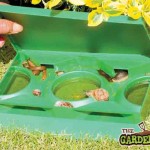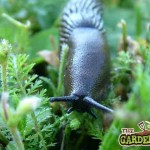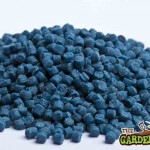If you have a heavy clay soil and live on the wet shores of Ireland then it is likely that your garden is frequented by slugs and snails. These pests which love big, fresh foliage will feed on and ravage crops such as cabbage, lettuce, peas and also annihilate the young seedlings of cucumbers, tomatoes and courgettes over night. There are a range of ways of dealing with slugs, all with varying degrees of success and slug pellets is one of those control options.
- Beer Trap
- Slug on the rampage
- Slug Pellets
Slug pellets have been around for many years and are loved and loathed by gardeners in equal measures. The obvious con that springs to mind when mentioning slug pellets is that they are poisonous to pets and children and nobody wants to put something poisonous in the garden, never mind around the vegetables they wish to eat.
The active ingredient in most slug pellets is Metaldehyde, this chemical cause the moist bodies of slugs to dry out which in turn kills the pest. Metaldehyde is poisonous to most pets and can make them ill if ingested. Of course these pellets are brightly coloured to discourage dogs from eating them. Meanwhile Metaldehyde is in fact an unexcepted pest control method in organic farming, although it’s use is restricted and special permission from your Organic Certified Associated in required before an organic grower can use Metaldehyde.
There is an alternative slug pellet which has ferramol as it’s active ingredient and this slug pellet is made up of Iron Oxide which does not harm pets or wild life.
Slug pellets have their place in the garden, they can be used around ornamental plants such as choisya, hostas, hydrangeas and other large leaved plants. Slug pellets are an effective control option so long as you spread enough pellets to create a barrier around each plant and you replenish the supply of slug pellets weekly and after rain showers.
However, with slugs being Ireland’s number one garden pest there are also tonnes of tricks of the trade and old wives tales in ways to control slugs other than using pellets. The more obvious ones are beer trays and copper bands. But some more obscure ones include horse hair, egg shells, cat litter and cold ashes.
While pellets save on time and labour in the garden, alternative controls such as slug barriers and beer trays offer novel ways to protect your crops with little effort but maximum reward.
With the range of alternative control options there really souldn’t be a need to resort to using Metaldehyde slug pellets. But if you do use them be sure to keep them away from vegetable crops and out of reach of pests and children.


